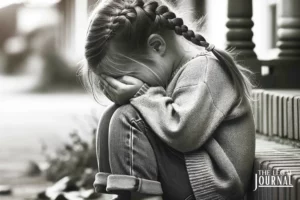Supreme Court Decision: A Turning Point for Purdue Pharma and Victims’ Rights
The impending decision of the United States Supreme Court regarding Purdue Pharma’s bankruptcy case is poised to significantly influence the legal landscape surrounding corporate bankruptcies and victims’ rights. This case centers on the controversial use of third-party releases in bankruptcy settlements, a legal tactic that could set a precedent affecting numerous high-profile cases, including those involving the Boy Scouts of America and the Catholic Church. As a legal expert specializing in lawsuits and mass torts, I delve into the complexities of this landmark case, its broader implications, and the balance it seeks to strike between corporate interests and victims’ rights.
Key Points:
- The Purdue Pharma case primarily revolves around the legality of its bankruptcy plan, which offers a substantial settlement in exchange for legal immunity for the Sackler family.
- Third-party releases, a pivotal aspect of this case, are increasingly common in corporate bankruptcies but face scrutiny for potentially bypassing due process.
- The case raises critical questions about the balance between efficient settlements and the rights of victims to seek justice through litigation.
- The Supreme Court’s decision could set a precedent impacting a range of organizations and entities facing mass harm accusations.
- This ruling has the potential to reshape the landscape of corporate accountability and victim compensation in the United States.
In the Purdue Pharma case, the core issue at hand is the proposed settlement that would see the Sackler family, former owners of the pharmaceutical giant, pay up to $6 billion to various parties affected by the opioid crisis. In return, they would receive immunity from future civil lawsuits without admitting guilt or wrongdoing. This arrangement exemplifies the use of third-party releases in bankruptcy proceedings, which have become increasingly commonplace yet controversial.
Nicole Langston, a bankruptcy scholar, and Adam Zimmerman, a law professor, have both highlighted how these releases can sometimes circumvent traditional legal processes, potentially disadvantaging victims. The argument centers around the balance between providing a swift resolution and ensuring due process and justice for those affected by corporate misconduct.
The US Trustee, overseeing bankruptcy cases, labels this deal as an “abuse” of the system. Conversely, proponents argue that such settlements are essential for timely and fair compensation. The complexity of this issue is evident in the varied opinions and the high stakes involved.
The implications of this case extend far beyond Purdue Pharma. Other organizations, like the Boy Scouts of America and Catholic dioceses, which have used similar tactics in their bankruptcy proceedings, are closely watching the outcome. These cases often involve delicate and emotionally charged allegations, such as sexual abuse, intensifying the debate over the appropriateness of third-party releases.
The Supreme Court’s decision is thus set to influence not just the fate of the Sacklers and Purdue Pharma but also the broader framework of how bankruptcy law intersects with victims’ rights. The ruling will likely affect how corporations facing mass harm allegations navigate bankruptcy, shaping the landscape of corporate accountability and victim compensation in America.
As the legal community and affected parties await the Supreme Court’s verdict, the fundamental questions of justice, corporate responsibility, and the effectiveness of the bankruptcy system in addressing mass torts remain at the forefront of this pivotal legal debate.
Citations:
- Samantha Delouya, CNN: “From the Boy Scouts to the Catholic Church, an upcoming Supreme Court ruling may mean some victims won’t see their day in court” Link
- Statements from Nicole Langston and Adam Zimmerman, legal experts in bankruptcy and mass torts.
- Data from the Centers for Disease Control and Prevention on opioid overdose deaths.











